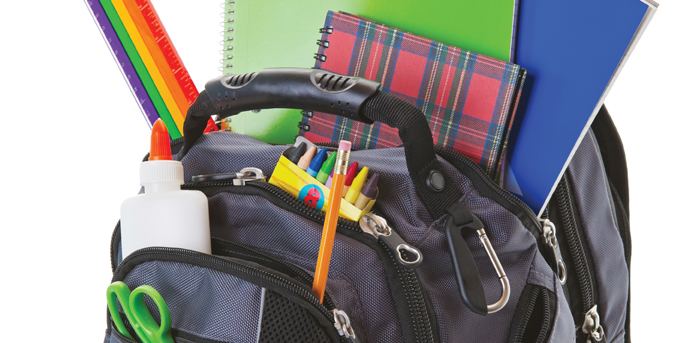Just a couple months into the school year and my sixth-grader’s backpack was like a black abyss of crumpled papers and wrappers.
I knew we had an organizational challenge on our hands. Apparently, according to experts who understand the way middle schoolers operate, my son and I weren’t alone.
“The organization of material and time management are the two most important areas that we expect the kids know how to manage, and yet their brains aren’t often ready to do that until they’re in their 20s,” says Becky Friedlander, director of academic support and learning development at Lake Forest Country Day School. “Research does show the most successful students are the ones who are the best organized, and they take these skills with them through life.”
For today’s middle schoolers who juggle different classes, teachers, activities, social media and in-person social experiences, starting out the year with an organizational plan can make all the difference to their success and independence. It’s equally important for students to have input in the plan, as they are the ones who understand the ways in which assignments are delivered in today’s age of technology.
“Being an organized person myself, I set up a desk with all the supplies—paper, pens, sharpeners, and everything I would think a student would need,” says Michelle Grossmann of Highland Park, parent of an incoming seventh grader. “But my son came up with his own system. Technology has given him a lot of autonomy because he can go online at any time and know what’s due in a week, when the test is going to be and what he’s turned in.”
While for some students it comes naturally, others need to be taught these “executive functioning” skills. Parents can help their students by arming them with an executive functioning “get-started toolbox,” which should include an assignment notebook, a three-ring binder with colored subject dividers, a folder with pockets for homework assignments and completed work and notecards.
Professional tutors are also often helpful in organizing students, and many tutoring companies are now offering executive functioning as a curriculum that can be taught as a standalone subject.
This list, curated from organizational experts, will get your child started with good habits:
1. Write down each assignment in an assignment notebook and check off when completed.
2. Cross-check the assignment notebook each night with each teacher’s blog, which should indicate homework, long-term assignments and upcoming tests.
3. Make it a goal to finish homework by 7 p.m.
4. Pack backpack at night—mornings are often too rushed.
5. Use a planner for long-term assignments, breaking up the project into separate pieces.
6. Set up a monthly calendar where “fun” activities are entered first, and then homework and long-term projects are filled in.
7. Use a nightly homework-planning sheet to help student visualize the night ahead; write in dinner, activities, etc. to help the student manage time.
8. Have perforated notecards on hand for test preparation. These notecards are easily manipulated for testing oneself and matching terms to definitions, or concepts to explanations.
9. Make sure students are using teacher-provided rubrics to guide coursework.
10. Use trial and error! Some strategies work for some students, but not others. Help create a custom plan that empowers your child.

